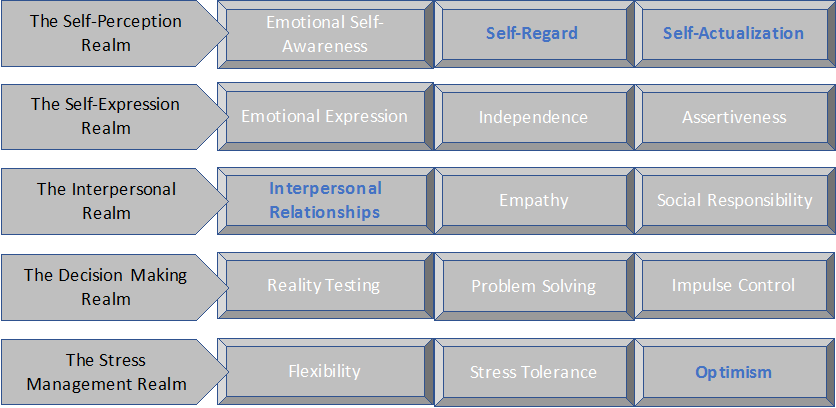Emotional Intelligence (EI) Competencies

EI competencies highlighted in blue measure an individual's level of well-being.
Self-Perception is designed to assess feelings of inner strength and confidence, and persistence in the pursuit of personally relevant and meaningful goals while understanding what, when, why and how different emotions impact thoughts and actions.
Self-Expression is an extension of the Self-Perception Composite scale. It addresses the outward expression or the action component of one’s internal perception. It assesses one’s propensity to remain self-directed and openly expressive of thoughts and feelings, while communicating these feelings in a constructive and socially acceptable way.
Interpersonal: Ability to develop and maintain relationships based on trust and compassion. Ability to articulate an understanding of another’s perspective. Ability to act responsibly while showing concern for others, their team or their greater community/organization.
Decision Making: The way in which one uses emotional information. How well one understands the impact emotions have on decision-making, including the ability to resist or delay impulses and remain objective so as to avoid rash behaviors and ineffective problem solving.
Stress Management: How well one can cope with the emotions associated with change, as well as unfamiliar and unpredictable circumstances, while remaining hopeful about the future and resilient in the face of setbacks and obstacles.
